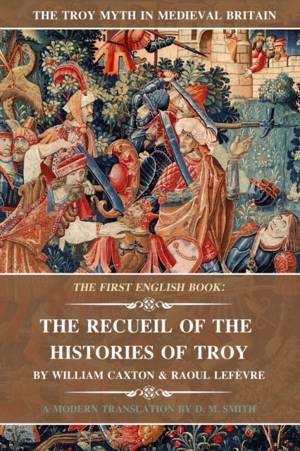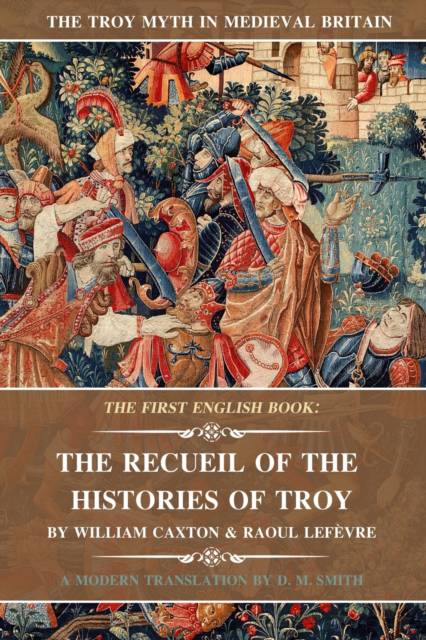
- Afhalen na 1 uur in een winkel met voorraad
- Gratis thuislevering in België vanaf € 30
- Ruim aanbod met 7 miljoen producten
- Afhalen na 1 uur in een winkel met voorraad
- Gratis thuislevering in België vanaf € 30
- Ruim aanbod met 7 miljoen producten
Zoeken
€ 28,45
+ 56 punten
Omschrijving
In medieval Britain, the works of Homer were practically unknown. In his absence, the half-remembered story of the Trojan War took on a distinctly Arthurian flavour, with the heroes Achilles and Hector reimagined as armoured knights on horseback, duelling with broadsword and lance. In 1474, in Bruges, William Caxton's translation of Raoul Lefèvre's Recoeil des Histoires de Troyes ("Anthology of the Histories of Troy") became the first book to be printed in the English language. This experiment with a then-novel technology would ultimately lead to a change in career for the merchant and diplomat, who would go on to establish England's first printing press in Westminster in 1476, and publish more than a hundred titles before his death in 1491. The Recueil draws on a diverse range of medieval and classical material to narrate the mythical history of Troy, from its first founding by the descendants of Dardanus to the sack of Laomedon's city by Hercules, and its final destruction by the Greeks under Agamemnon. Sources include the Genealogia Deorum Gentilium of Giovanni Boccaccio, a Spanish chronicle produced at the court of Alfonso X of Castile in the thirteenth century, the writings of Virgil and Ovid, and Guido delle Colonne's Historia Destructionis Troiae. Caxton's translation was enormously popular in its day, remaining in print well into the eighteenth century, and is believed to have been utilised by Shakespeare when composing his Troilus and Cressida. With this new critical edition, fully annotated and rendered in Modern English, editor D. M. Smith brings a true literary milestone into the twenty-first century, to be enjoyed and examined by a new generation of readers.
Specificaties
Betrokkenen
- Auteur(s):
- Uitgeverij:
Inhoud
- Aantal bladzijden:
- 582
- Taal:
- Engels
- Reeks:
- Reeksnummer:
- nr. 4
Eigenschappen
- Productcode (EAN):
- 9798475922774
- Verschijningsdatum:
- 12/11/2021
- Uitvoering:
- Paperback
- Formaat:
- Trade paperback (VS)
- Afmetingen:
- 152 mm x 229 mm
- Gewicht:
- 766 g

Alleen bij Standaard Boekhandel
+ 56 punten op je klantenkaart van Standaard Boekhandel
Beoordelingen
We publiceren alleen reviews die voldoen aan de voorwaarden voor reviews. Bekijk onze voorwaarden voor reviews.











